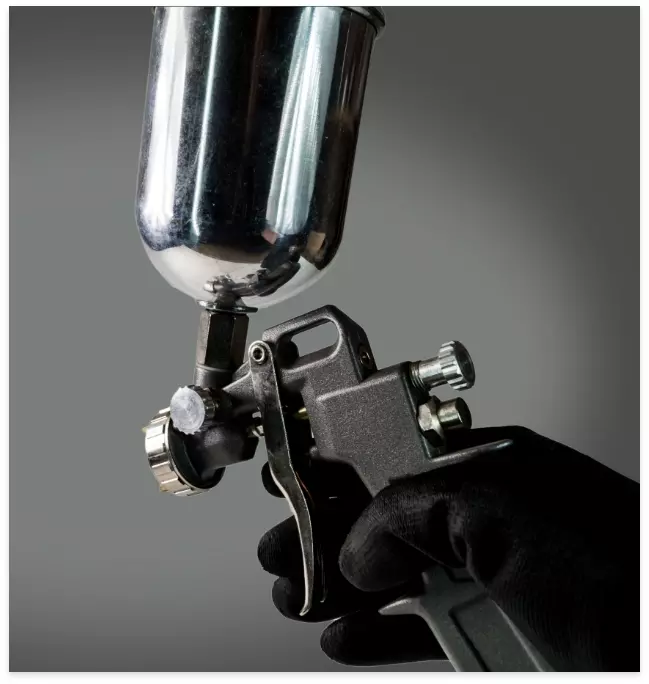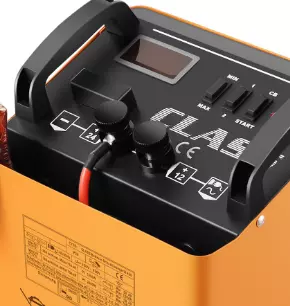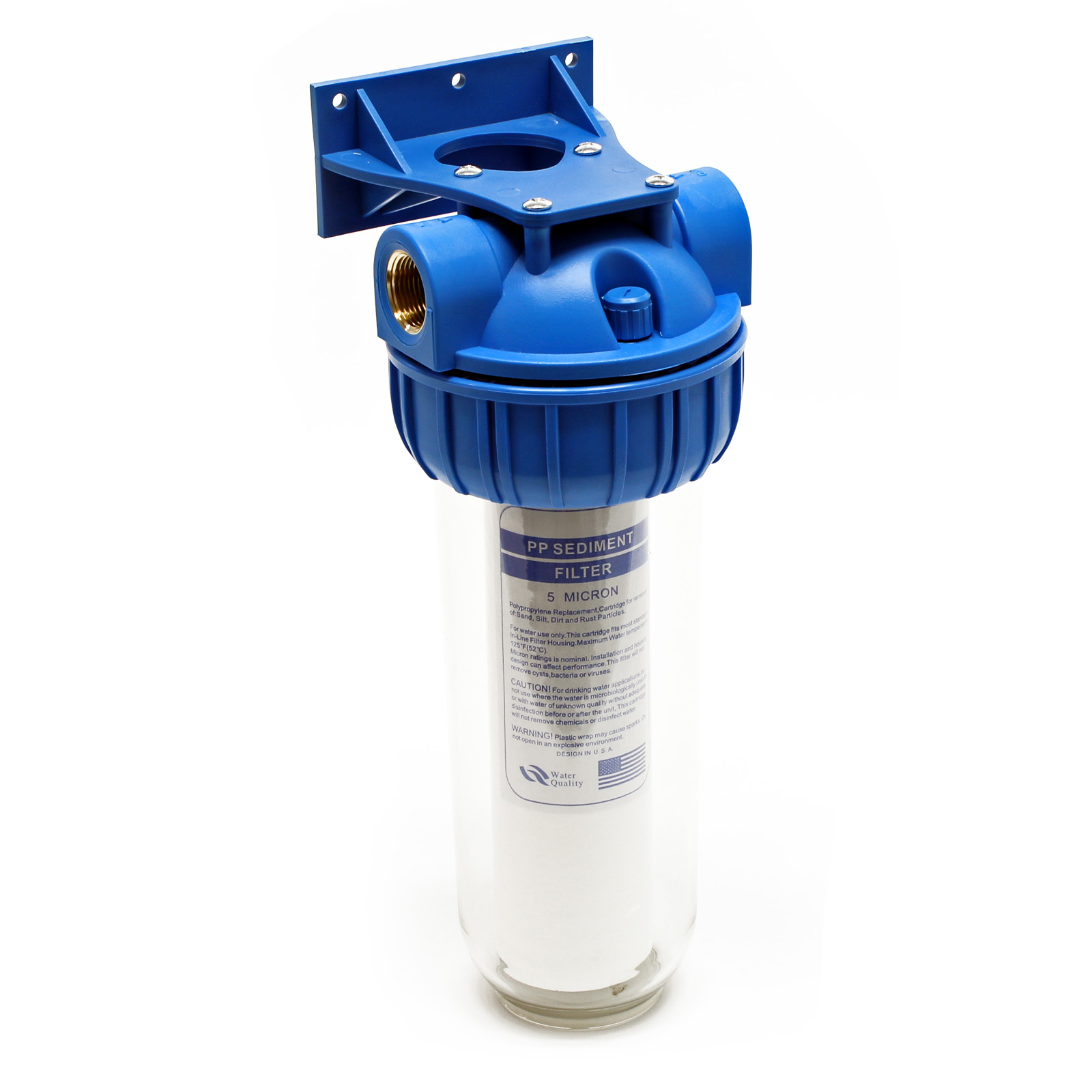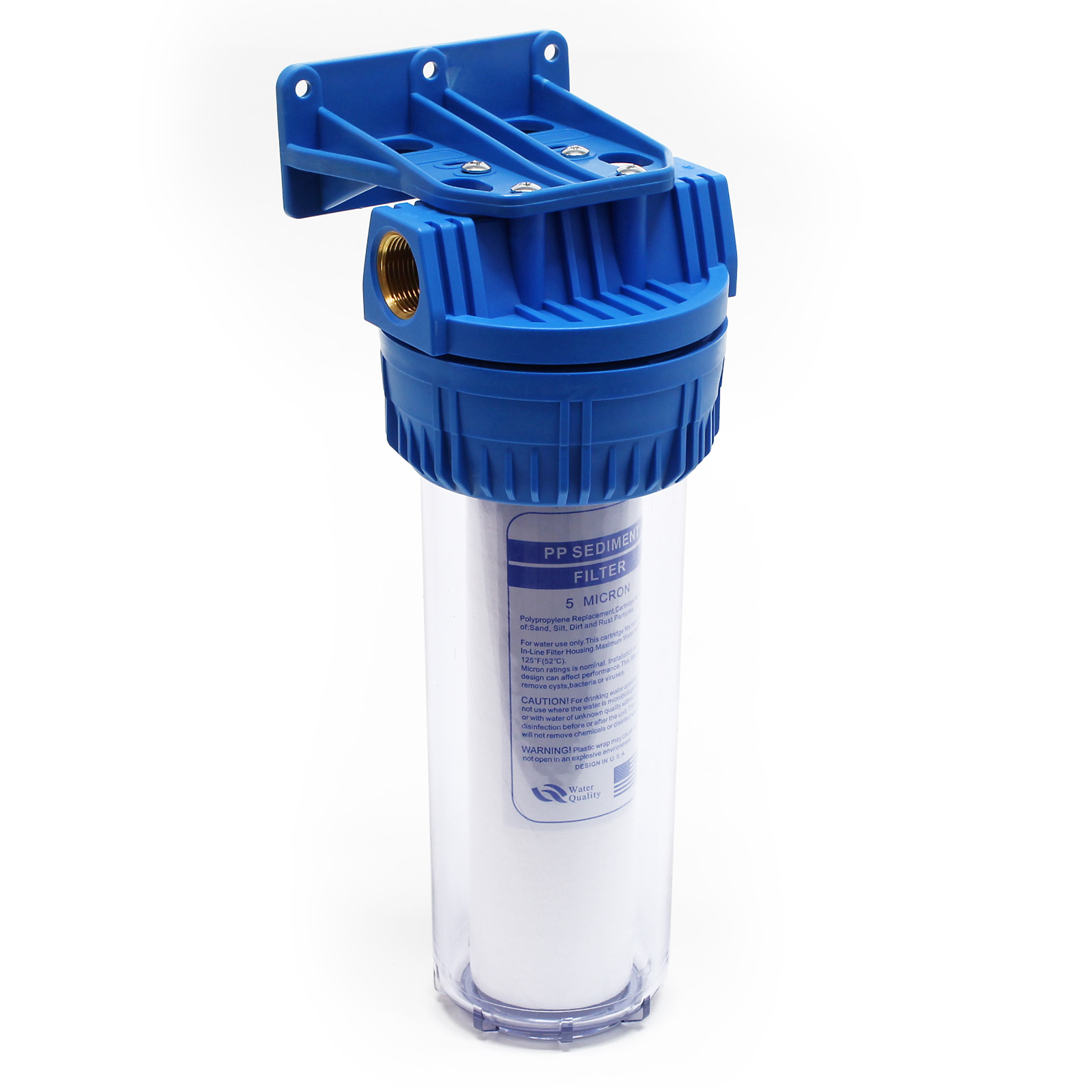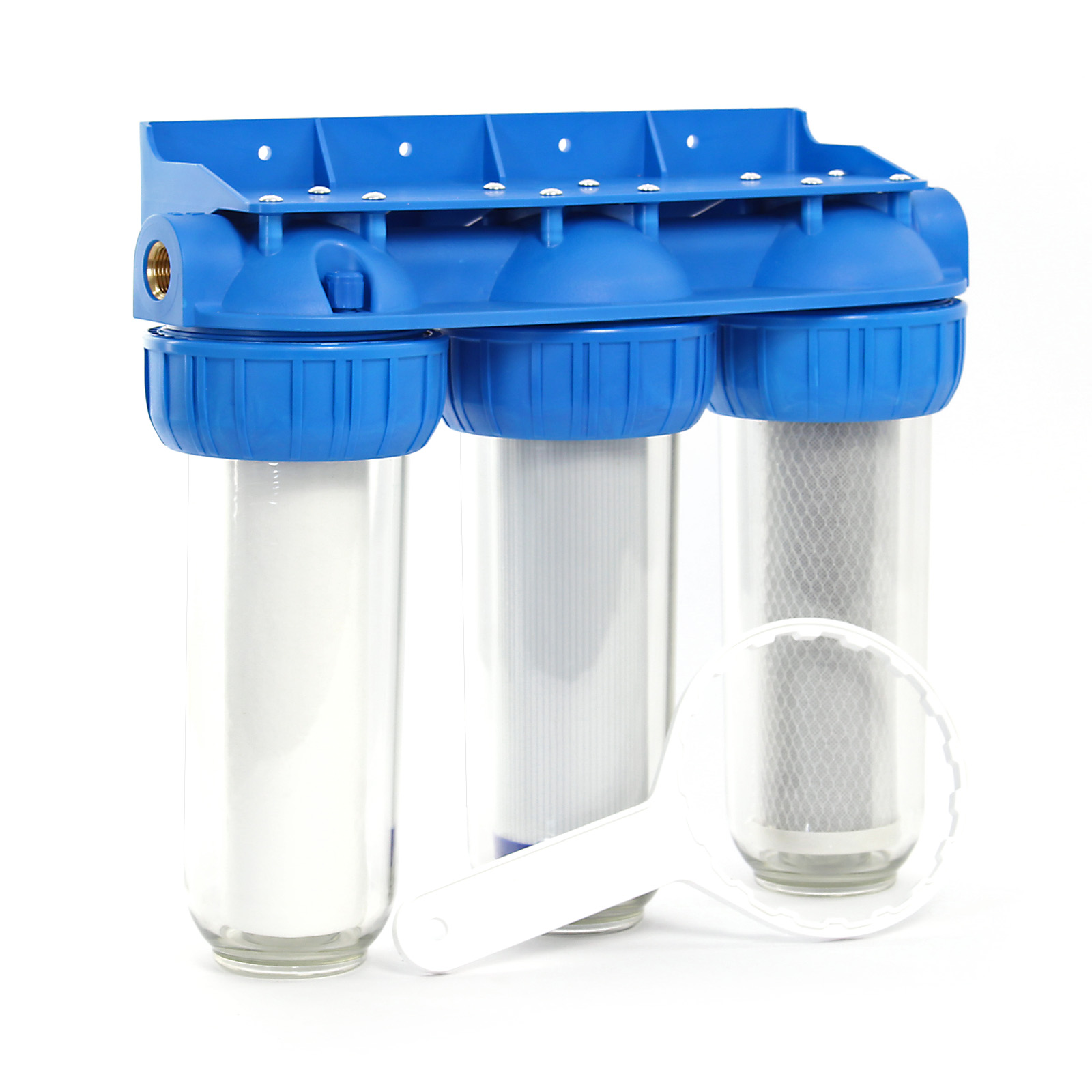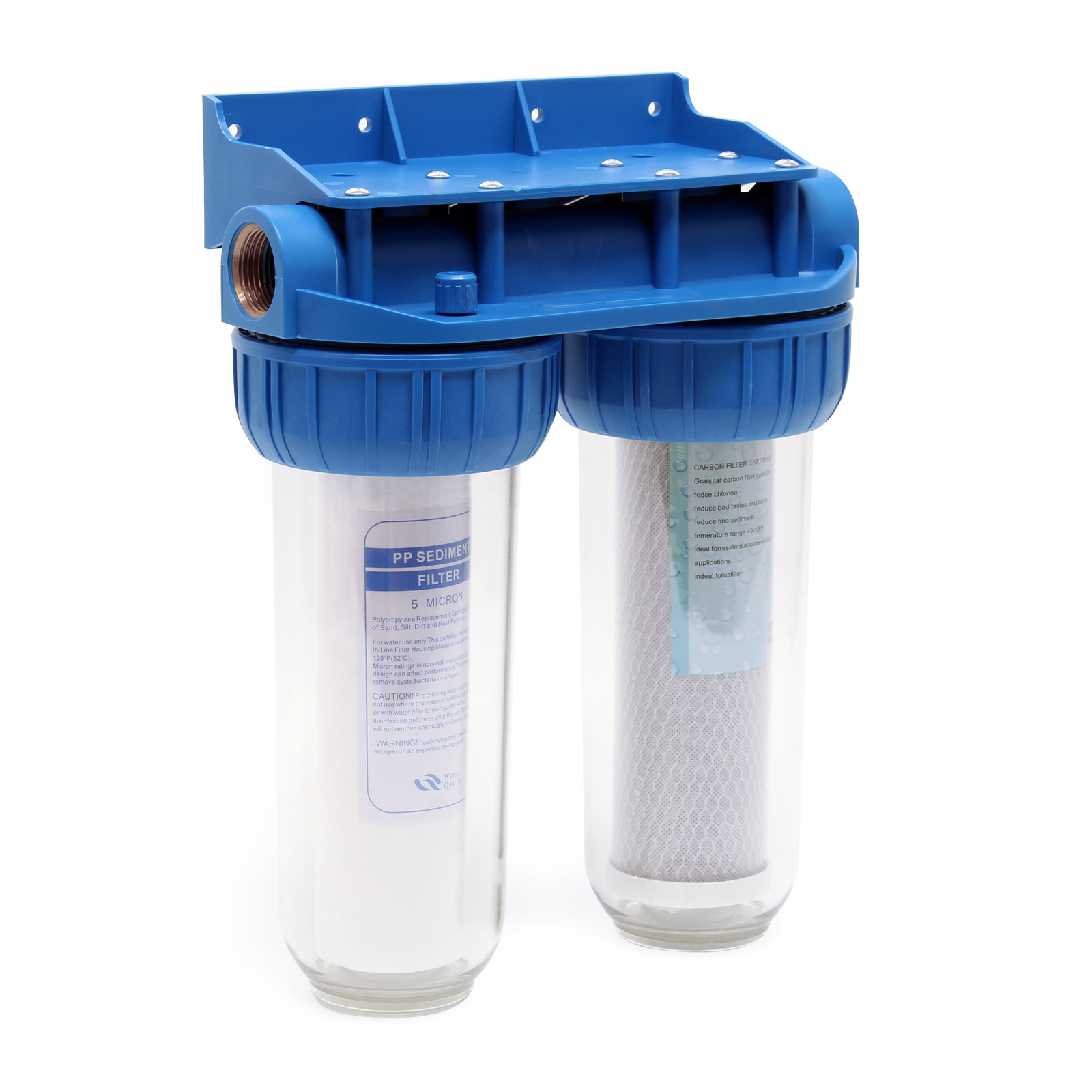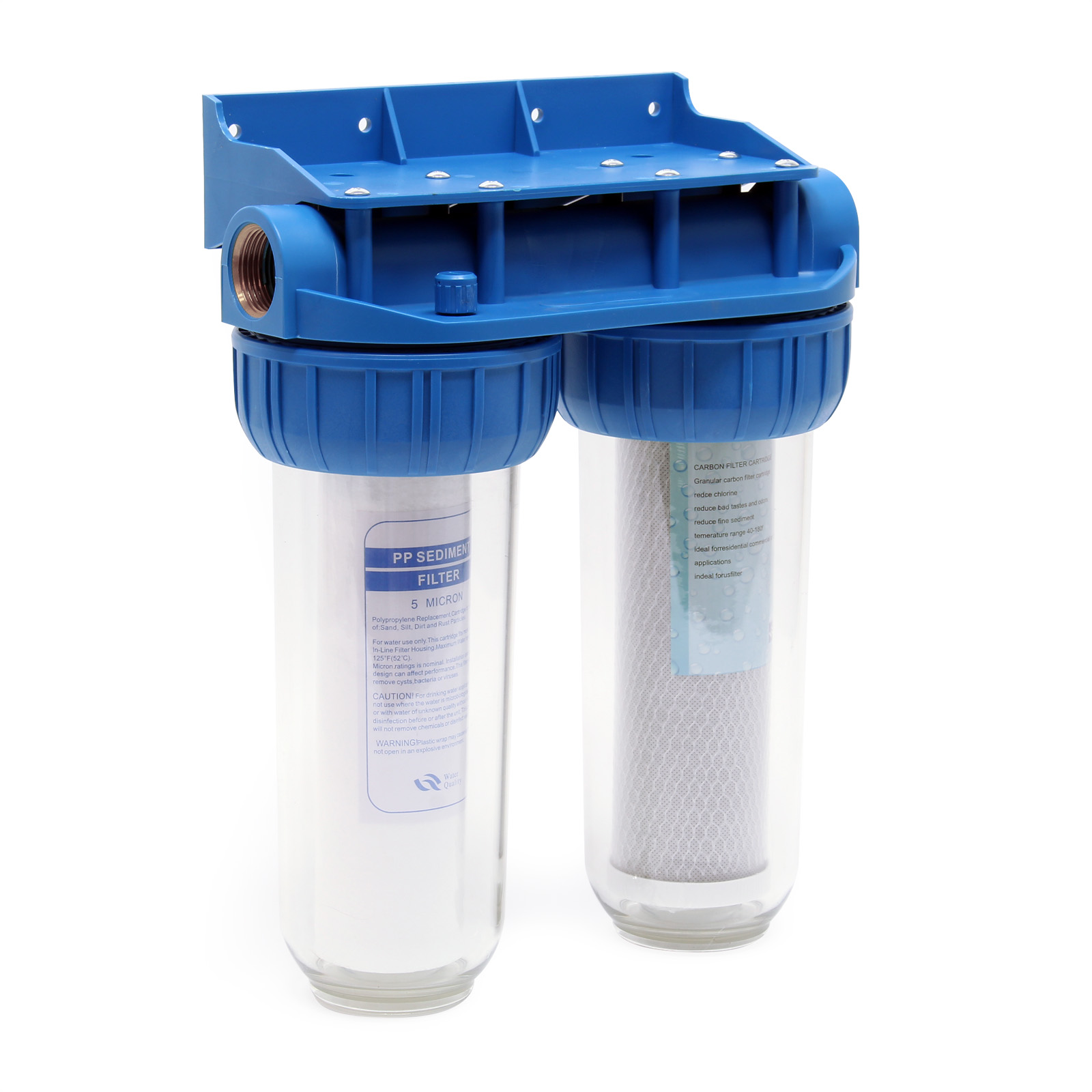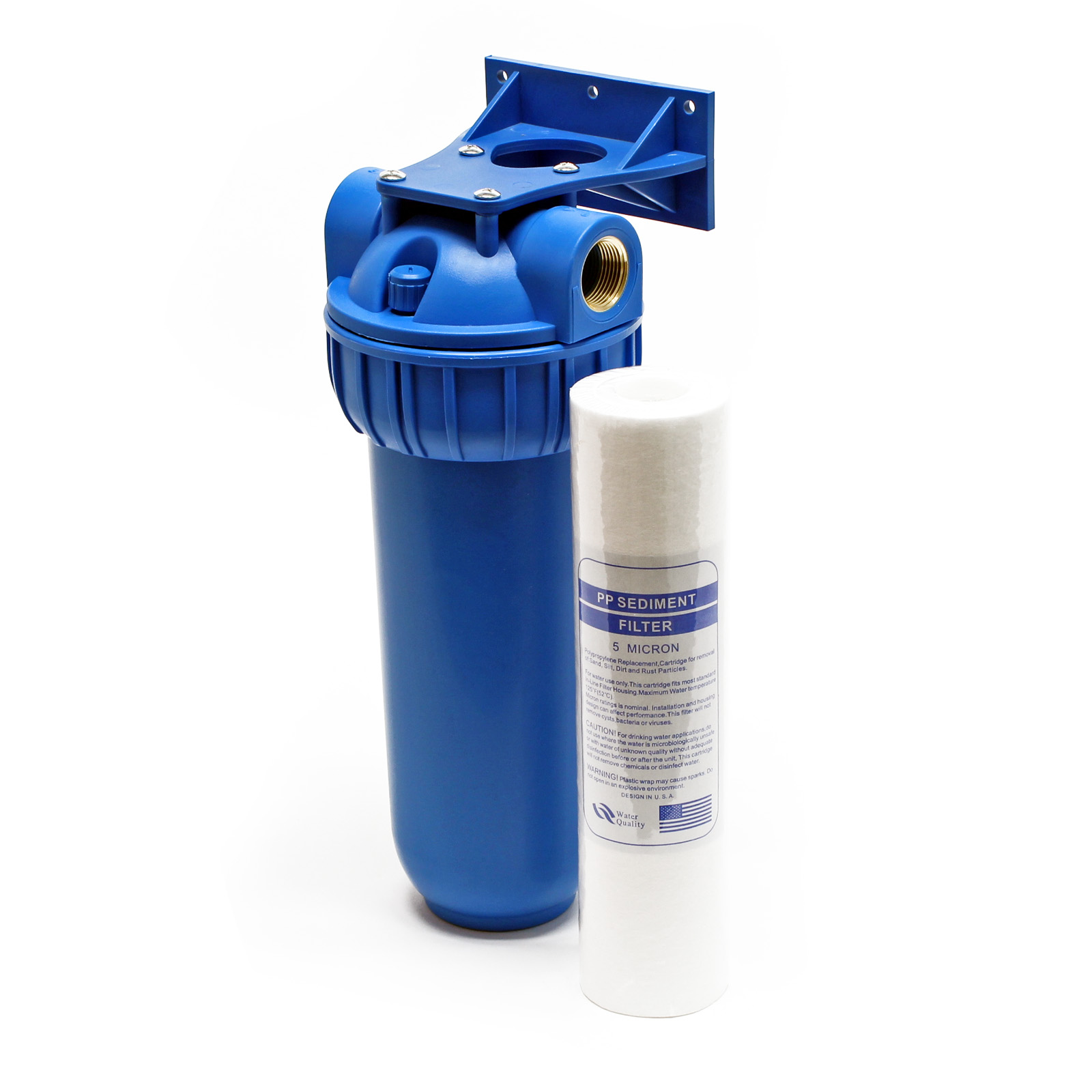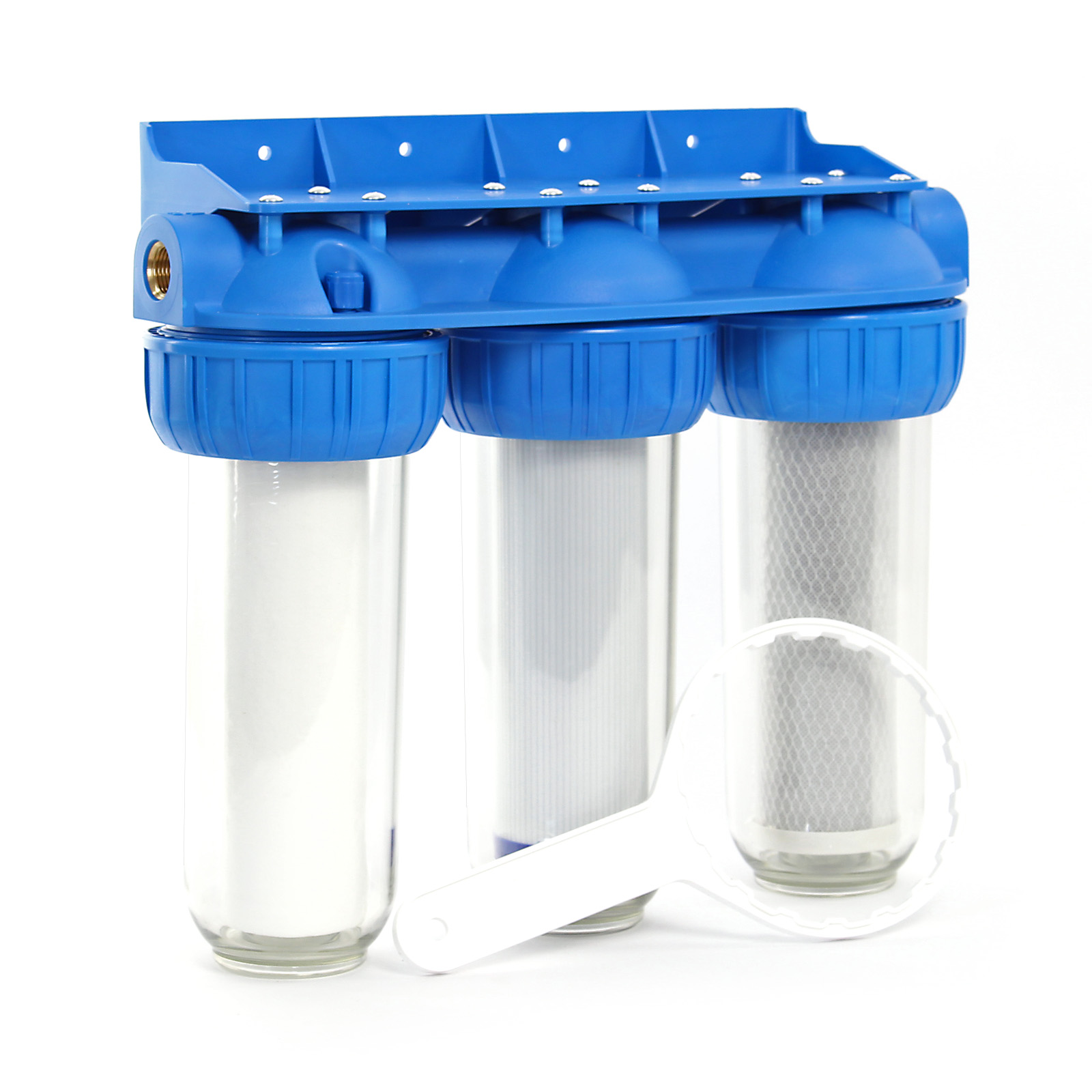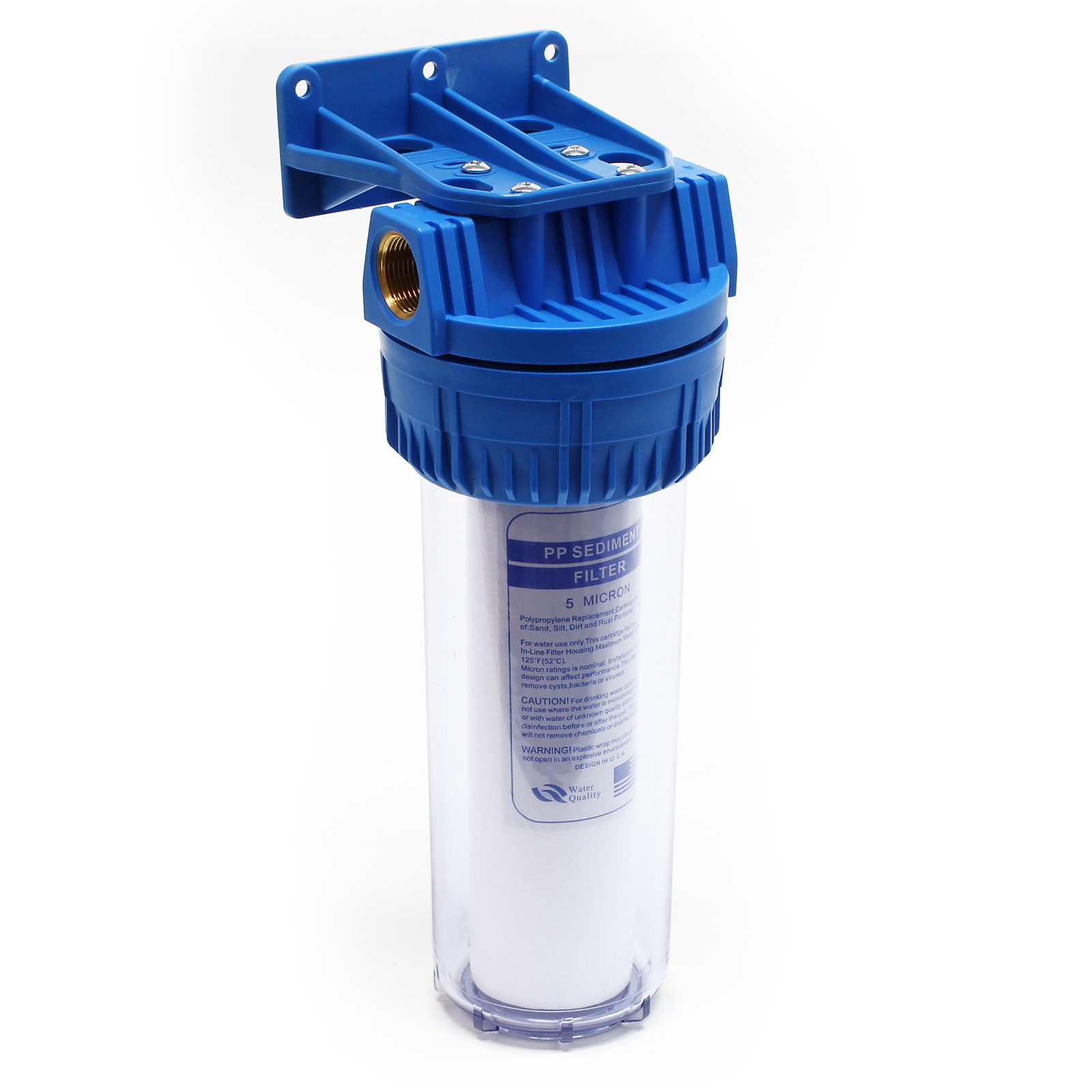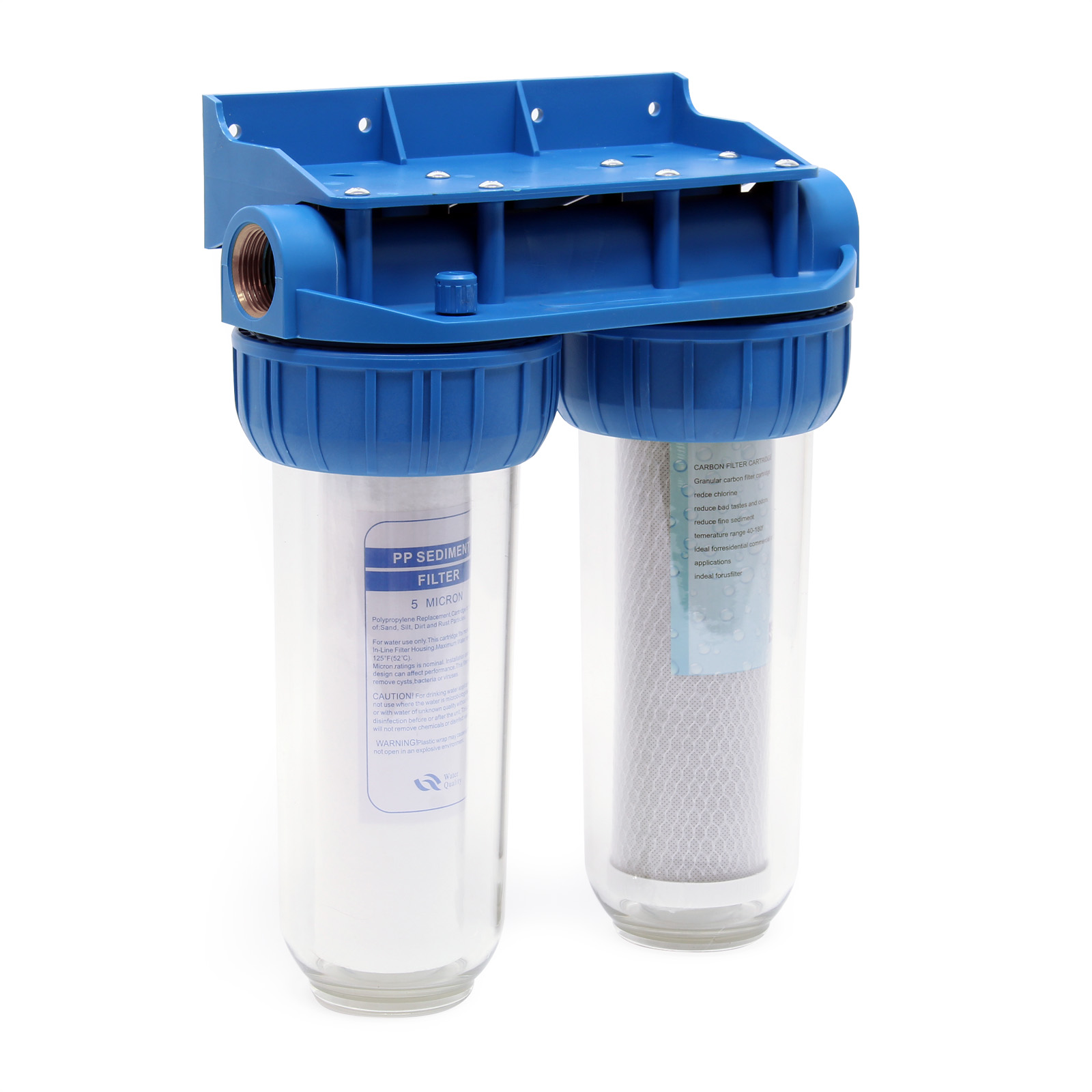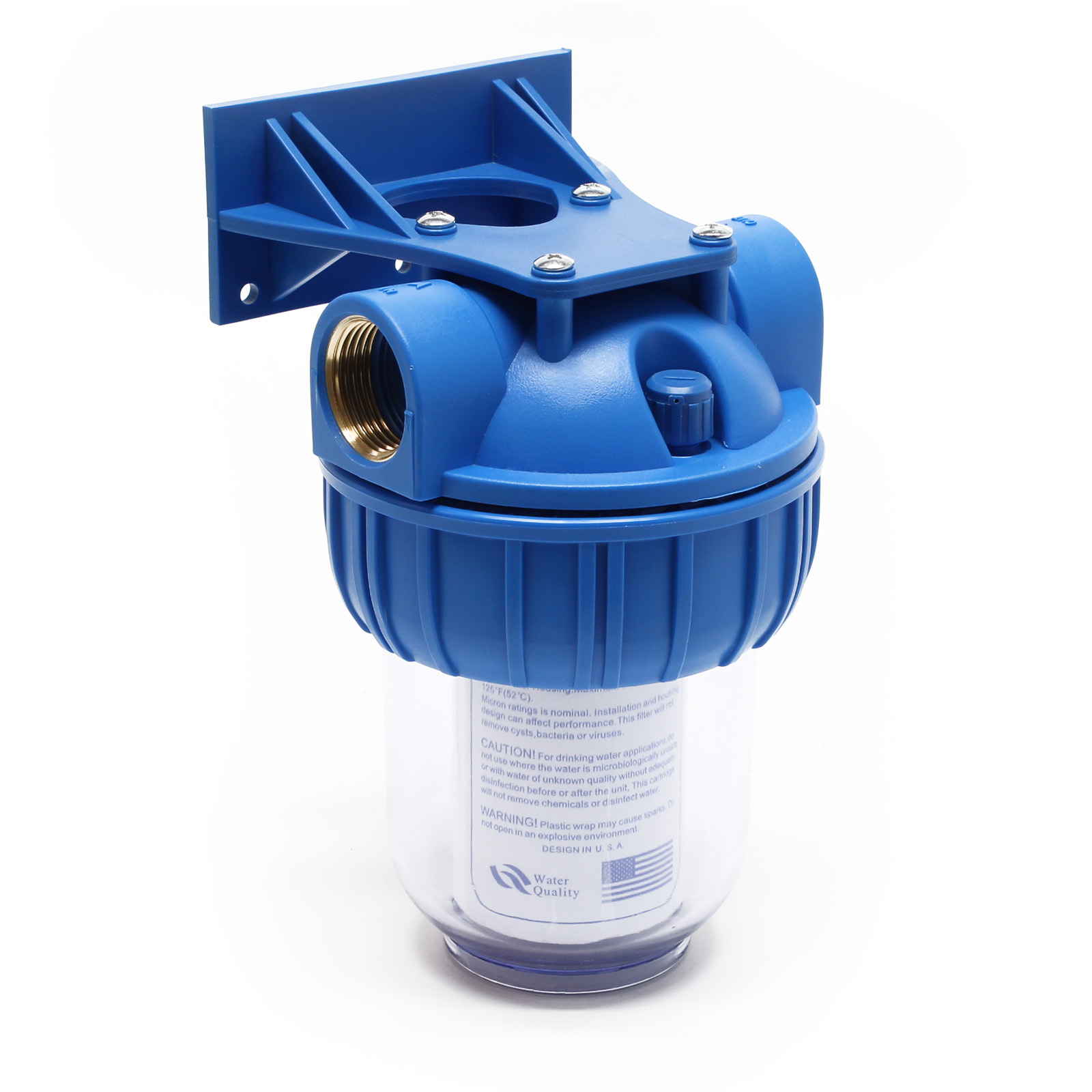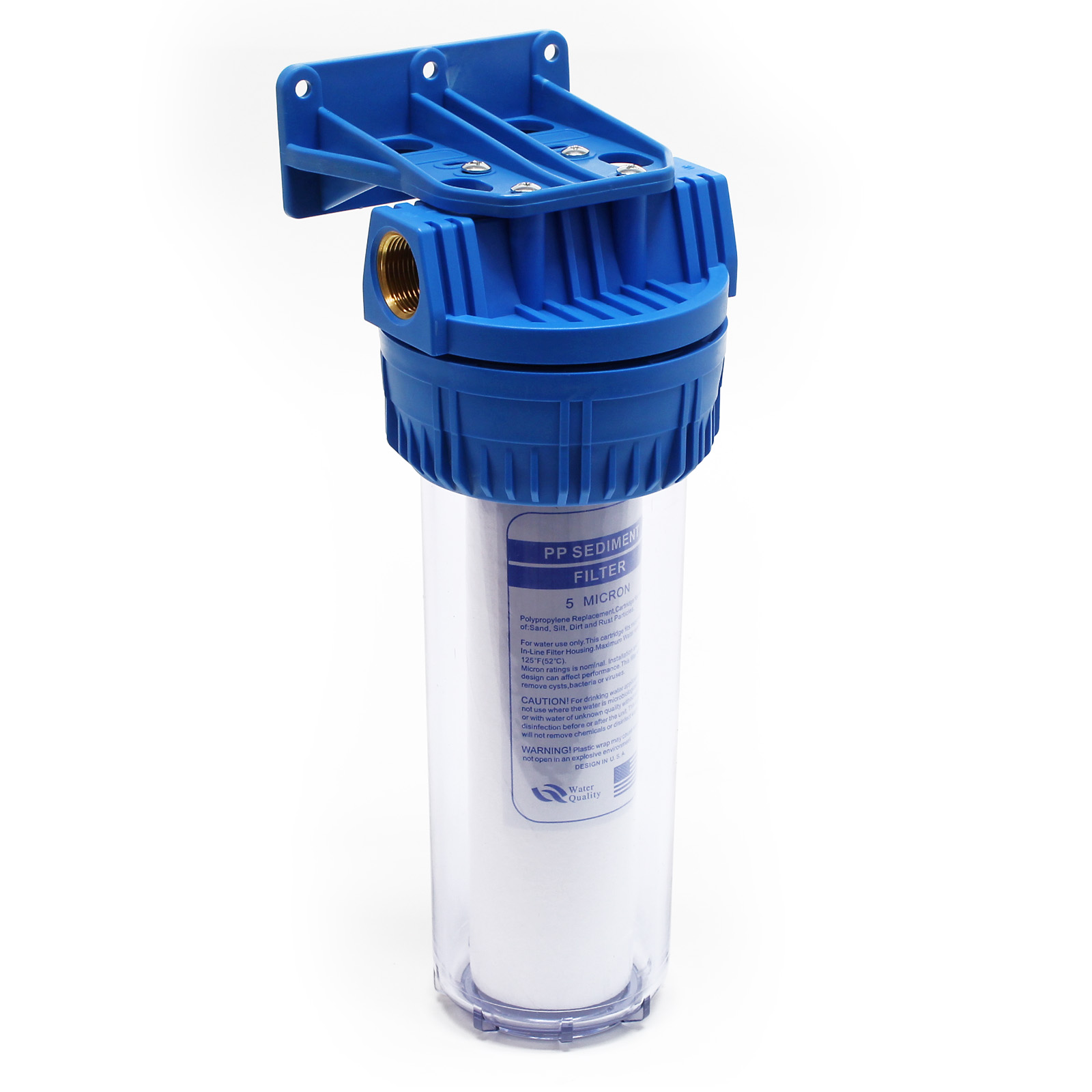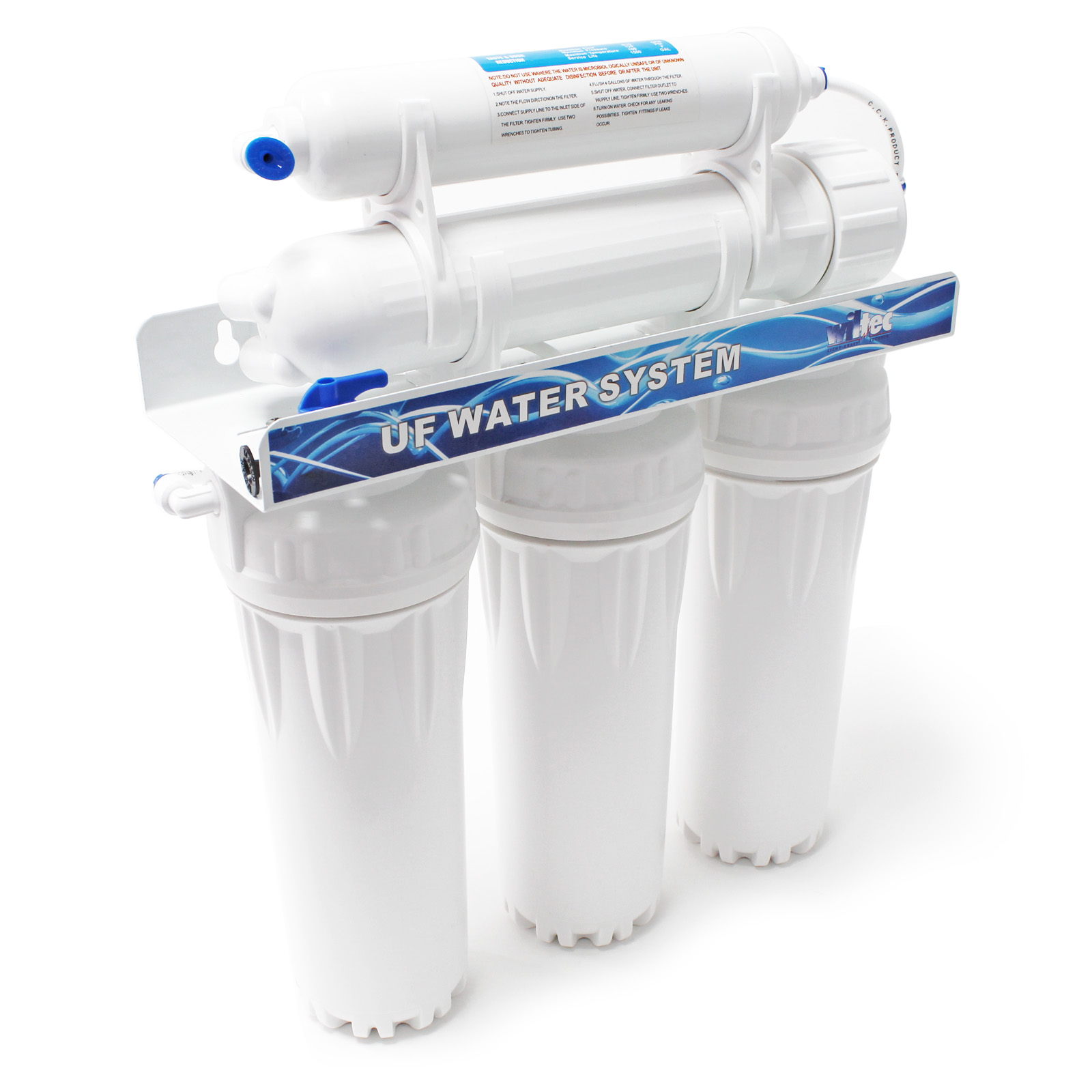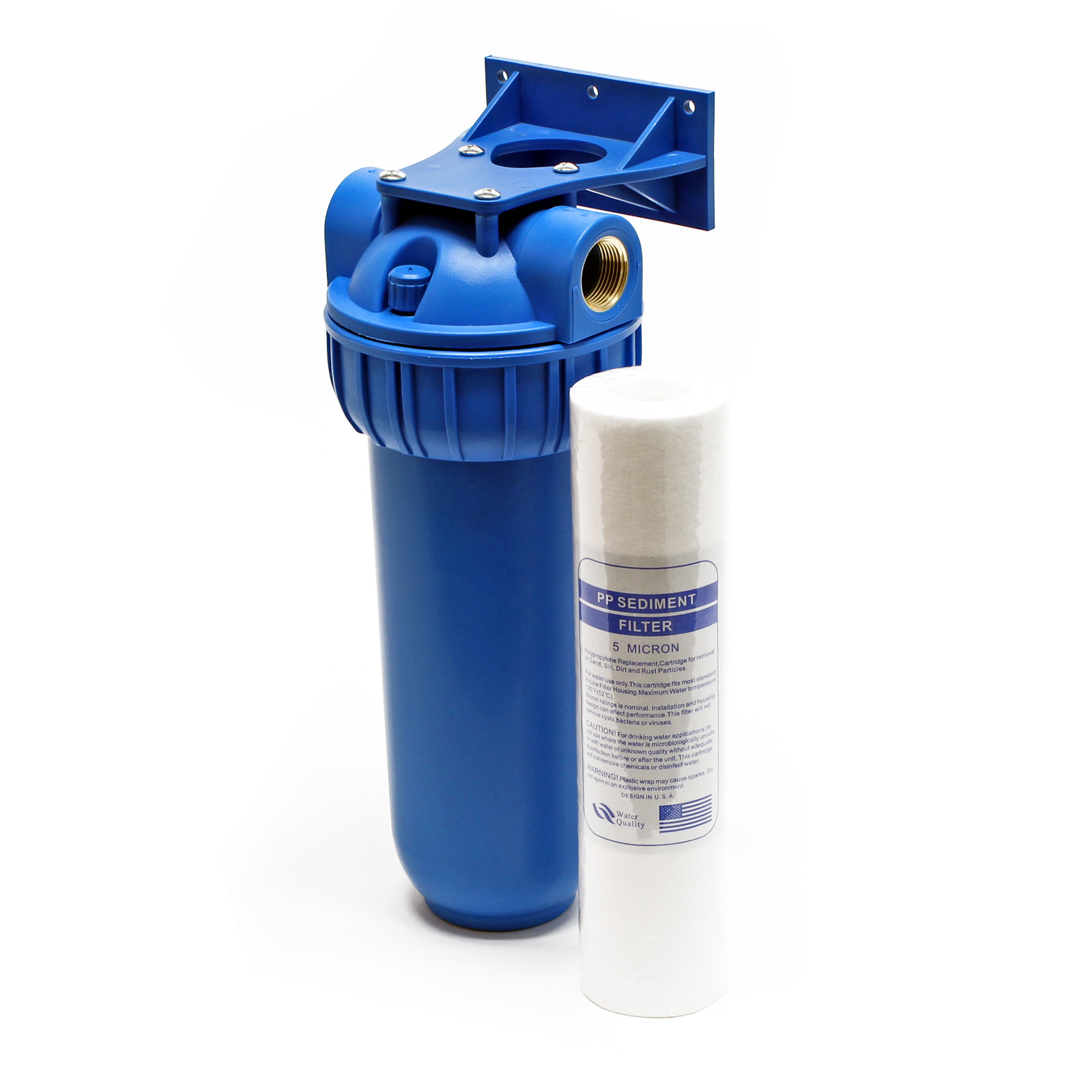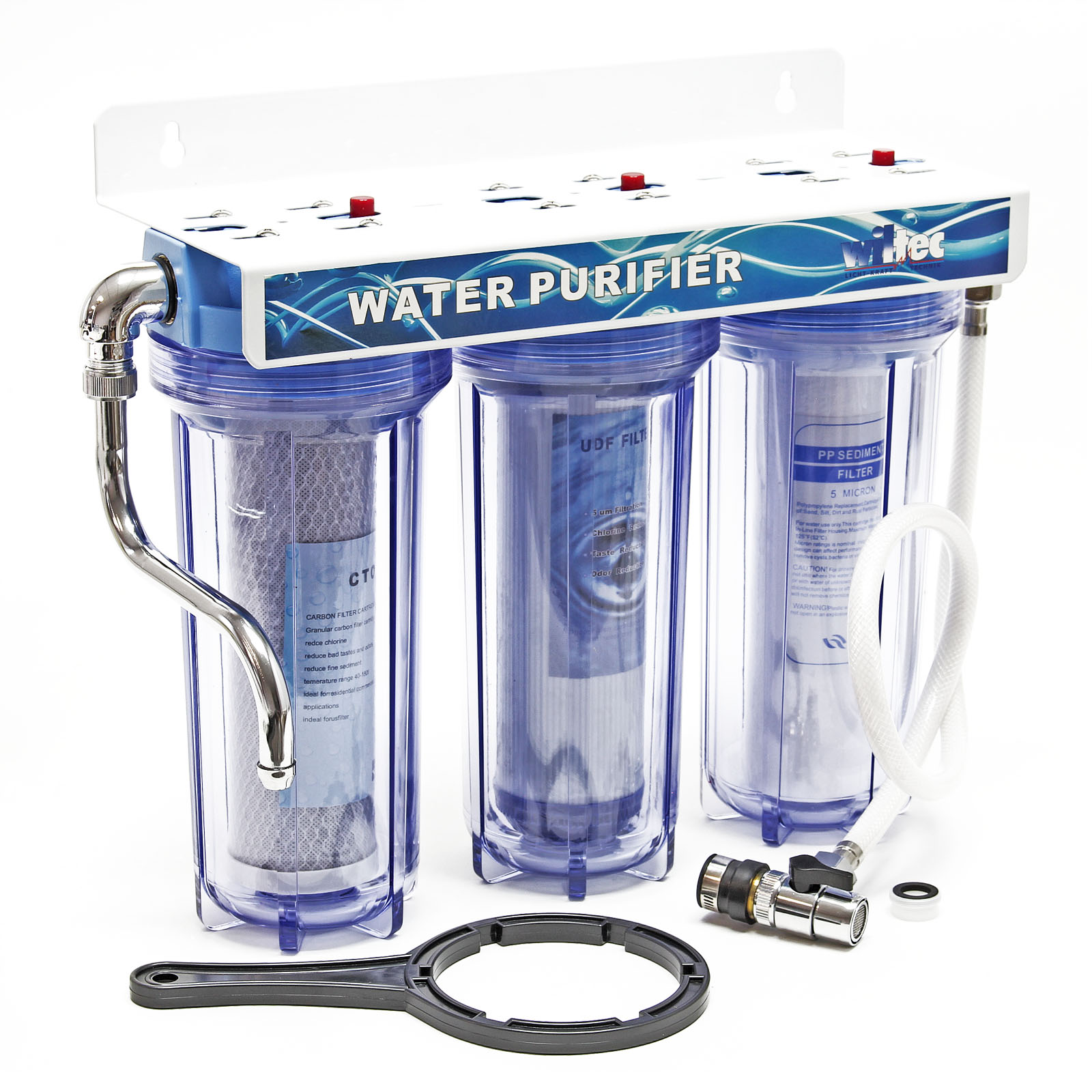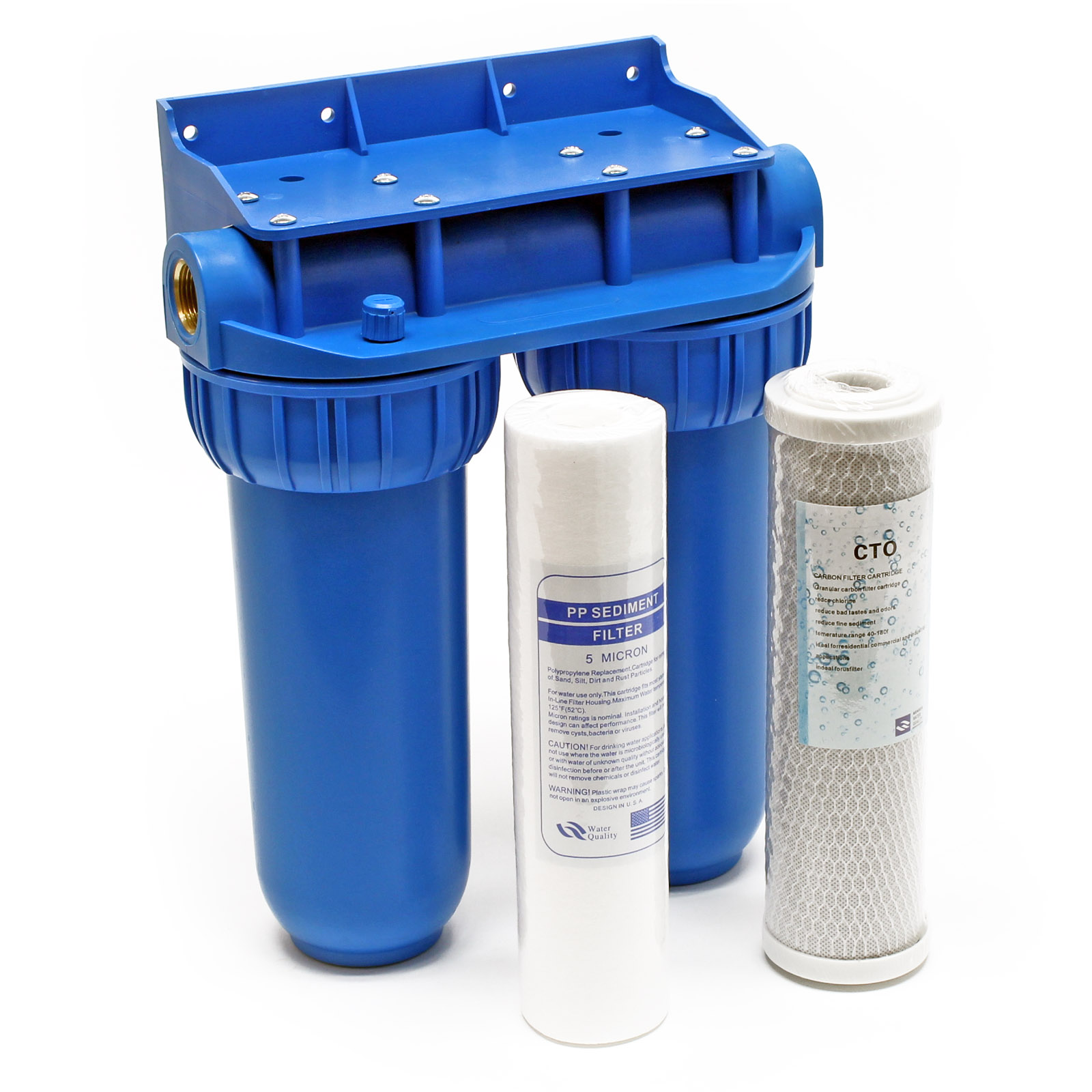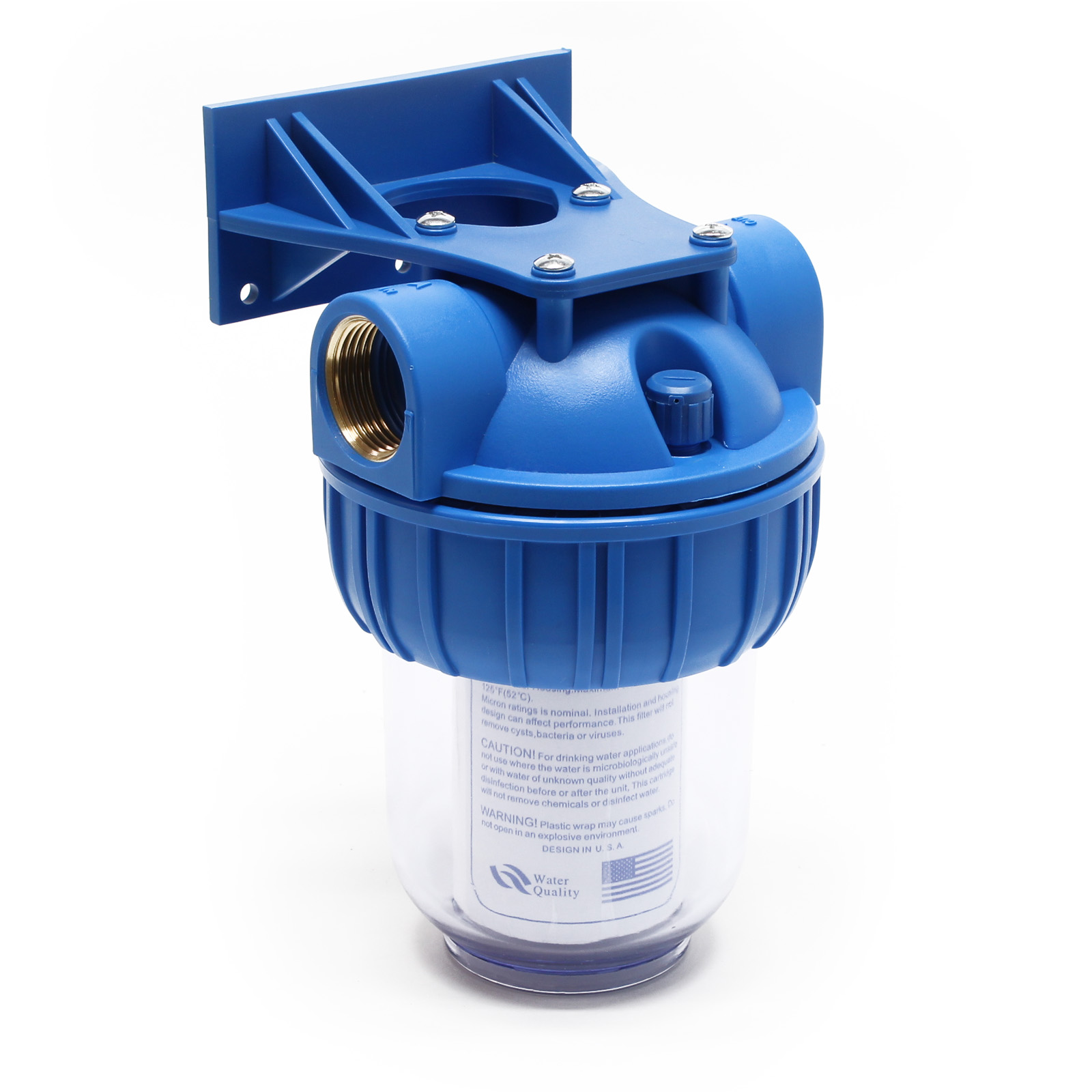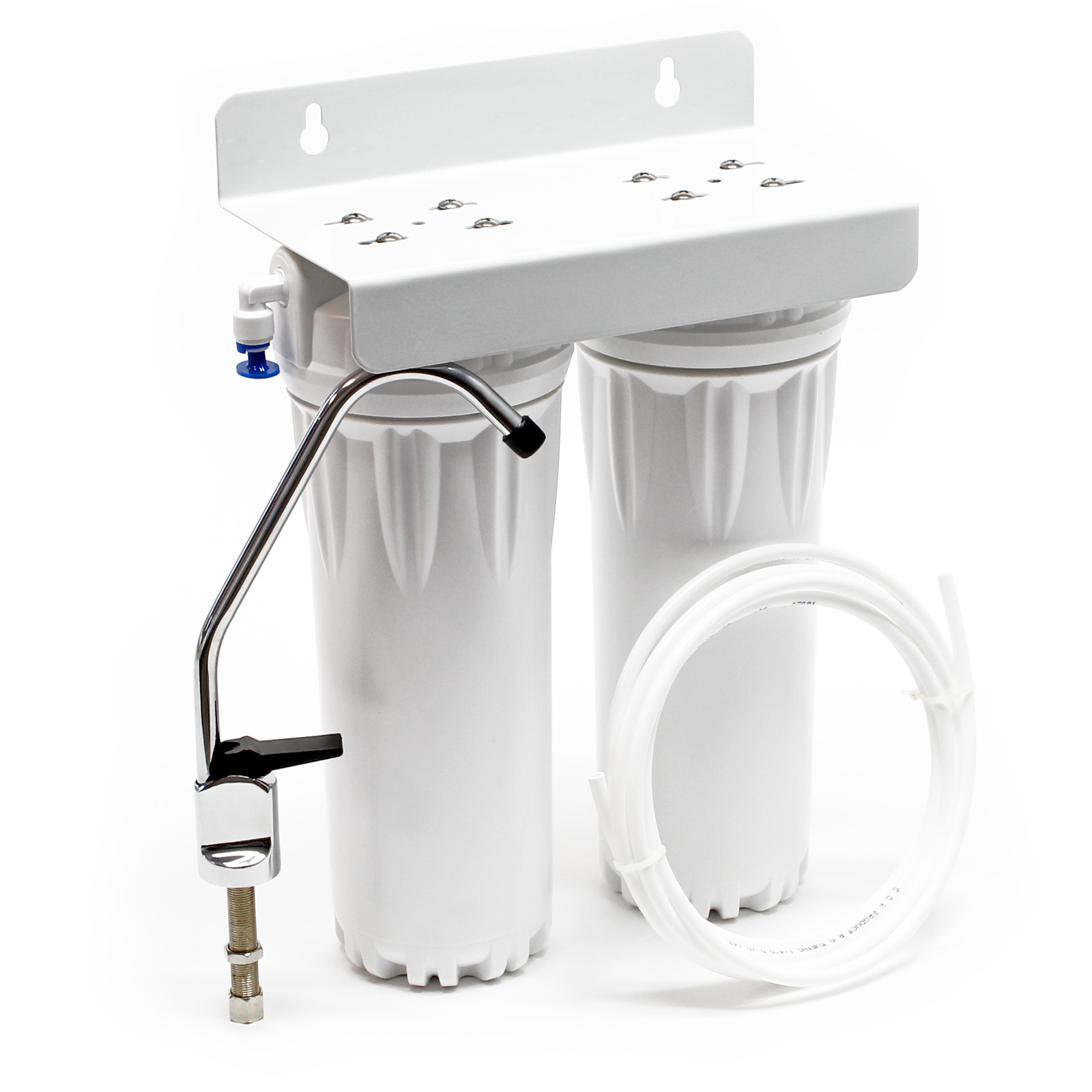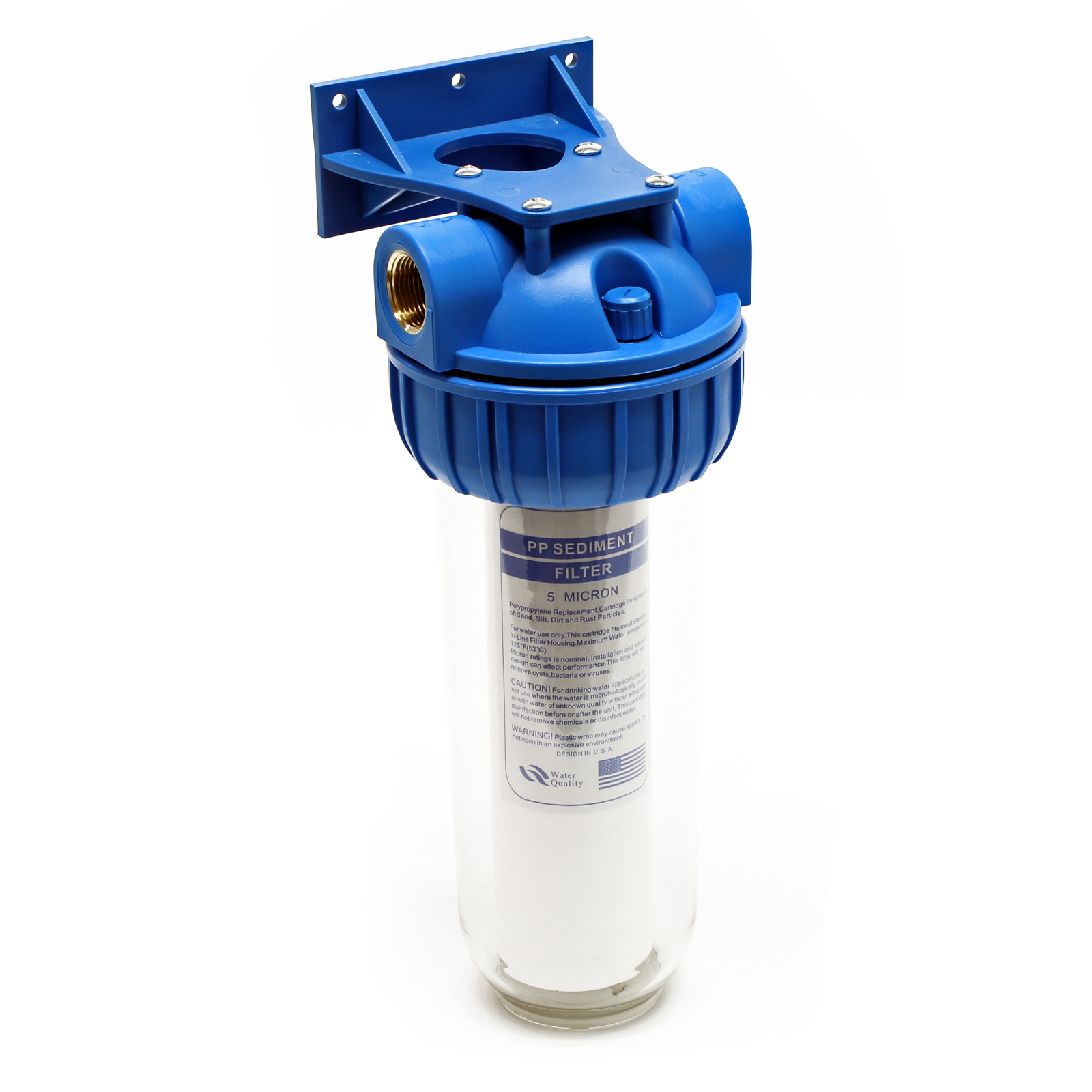Available, delivery time: 2 - 3 days
• Diameter 60mm
• Fineness 5µ
• Wall mount bracket included
• With 10 inches (254mm) filter cartridges
Available, delivery time: 2 - 3 days
• Diameter 60 mm
• Fineness 5 µ
• Wall mount bracket included
• With 254 mm (10") filter cartridge
Available, delivery time: 2 - 3 days
• Block carbon filter
• Granular carbon filter
• Diameter 60 mm
• Fineness 5 µ
• Wall mount bracket included
• With 10 inches (254 mm) filter cartridges
Available, delivery time: 2 - 3 days
• 5 µ Sediment filter
Available, delivery time: 2 - 3 days
• 5 µ Sediment filter
• 5 micron activated carbon block
Available, delivery time: 2 - 3 days
• 2x Gourmet filter with activated-carbon granulate
• Diameter 60 mm – fineness 5 µ
• Wall mount bracket included
• With 254-mm (10″) filter cartridges
Available, delivery time: 2 - 3 days
• Diameter 60mm
• Fineness 5µ
• Wall mount bracket included
• With 10 inches (254mm) filter cartridges
Available, delivery time: 2 - 3 days
• Block carbon filter
• Granular carbon filter
• Diameter 60 mm
• Fineness 5 µ
• Wall mount bracket included
• With 10 inches (254 mm) filter cartridges
Available, delivery time: 2 - 3 days
• Diameter 60 mm
• Fineness 5 µ
• Wall mount bracket included
• With 254 mm (10") filter cartridge
Available, delivery time: 2 - 3 days
• 5 µ Sediment filter
• 5 micron activated carbon block
Available, delivery time: 2 - 3 days
• Block carbon filter
• Diameter 60mm
• Fineness 5µ
• Wall mount bracket included
• With 10 inches (254mm) filter cartridges
Available, delivery time: 2 - 3 days
• Diameter 60mm
• Fineness 5µ
• Wall mount bracket included
• With 10 inches (254mm) filter cartridges
Available, delivery time: 2 - 3 days
• Diameter 60 mm
• Fineness 5 µ
• Wall mount bracket included
• With 254 mm (10") filter cartridge
Available, delivery time: 2 - 3 days
• for drinking water and aquariums
• 3 different activated carbon filters
• Sediment Filter 5µ
• Ultrafilter
• Cartridges can be replaced
Available, delivery time: 2 - 3 days
• Block carbon filter
• Granular carbon filter
• Diameter 60 mm
• Fineness 5 µ
• Wall mount bracket included
• With 10 inches (254 mm) filter cartridges
Available, delivery time: 2 - 3 days
• Diameter 60mm
• Fineness 5µ
• Wall mount bracket included
• With 10 inches (254mm) filter cartridges
Available, delivery time: 2 - 3 days
• Sediment filter 5µ
• Activated carbon block 5µ
• Activated carbon granulate 5µ
Available, delivery time: 2 - 3 days
• Block carbon filter
• Diameter 60mm
• Fineness 5µ
• Wall mount bracket included
• With 10 inches (254mm) filter cartridges
Available in 76 days, delivery time 2 - 3 days
• Diameter 60mm
• Fineness 5µ
• Wall mount bracket included
• With 10 inches (254mm) filter cartridges
Available, delivery time: 2 - 3 days
• Easy installing
• Easy to use
• Modern & eco-friendly
Available, delivery time: 2 - 3 days
• Block carbon filter
• Diameter 60 mm
• Fineness 5 µ
• Wall mount bracket included
• With 10 inches (254 mm) filter cartridges
Available, delivery time: 2 - 3 days
• Easy installing
• Easy to use
• Modern & eco-friendly
Available, delivery time: 2 - 3 days
• Diameter 60mm
• Fineness 5µ
• Wall mount bracket included
• With 10 inches (254mm) filter cartridges
Available, delivery time: 2 - 3 days
• Diameter 60mm
• Fineness 5µ
• Wall mount bracket included
• With 10 inches (254mm) filter cartridges













